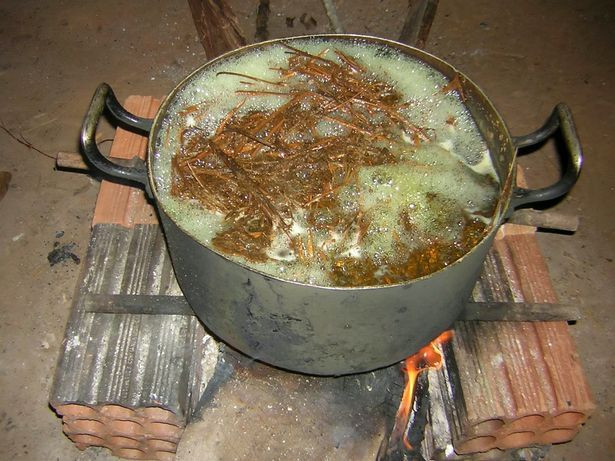Amazonian Drug Ayahuasca Can Help Cure Depression, Alcoholism: Study

Ayahuasca, a psychedelic traditionally brewed in South America, has shown in a study to improve people's general sense of wellbeing and may offer a treatment for alcoholism and depression.
According to the study conducted by a team from Exeter University and University College London, the Amazonian brew contains dimethyltryptamine (DMT) — a psychedelic drug illegal in the U.S. and U.K. — and could improve your sense of wellbeing and fight away depression .
The team also found that this potent brew is capable of fighting several addiction problems including alcoholism. DMT is also far more effective in controlling drinking among severe alcoholics, compared to other hallucinogens like LSD or magic mushrooms. The research is believed to be the biggest undertaken yet to look into the effects of ayahuasca and DMT.
"Several observational studies have examined the long-term effects of regular ayahuasca use in the religious context. In this work, long-term ayahuasca use has not been found to impact on cognitive ability, produce addiction or worsen mental health problems,” said senior author professor Celia Morgan of the University of Exeter in the study.
"In fact, some of these observational studies suggest that ayahuasca use is associated with less problematic alcohol and drug use, and better mental health and cognitive functioning," she added.
The team used Global Drug Survey data of over 96,000 participants, which measured wellbeing using the Personal Wellbeing Index. This is an online survey tool for scientists who study things such as personal relationships, connection with the community and a sense of achievement. Of the around 96,000 participants, 527 were ayahuasca users, 18,138 used LSD or magic mushrooms and 78,236 did not take any psychedelic drugs.
According to the study, only some psychoactive effects can be felt from consuming the ayahuasca vine alone. The hallucinogen DMT component is digested in the stomach and remains inactive without the inclusion of a monoamine oxidase inhibitor (MAOI) which brings out the hallucinogenic properties of this drug. This was widely documented in the 2000 book titled, "DMT: The Spirit Molecule: A Doctor's Revolutionary Research into the Biology of Near-Death and Mystical Experiences" written by Rick Strassman.
The study says that combining both a MAOI-containing plant and DMT-containing substance is necessary for full hallucinogenic effect.
The effects of the hallucinations usually lasted for six hours, and were most strongly felt one hour after consumption. Ayahuasca users reported higher general wellbeing over the previous 12 months than other respondents in the survey.
"These findings lend some support to the notion that ayahuasca could be an important and powerful tool in treating depression and alcohol use disorders," said lead author Dr Will Lawn of University College London in a press release.
"Recent research has demonstrated ayahuasca's potential as a psychiatric medicine, and our current study provides further evidence that it may be a safe and promising treatment. It is important to note that these data are purely observational and do not demonstrate causality,” he added.
"Moreover, ayahuasca users in this survey still had an average drinking level which would be considered hazardous. Therefore, randomized controlled trials must be carried out to fully examine ayahuasca's ability to help treat mood and addiction disorders. However, this study is notable because it is, to the best of our knowledge, the largest survey of ayahuasca users completed to date."
The researchers said future studies should examine the relationships between ayahuasca use, mental health, wellbeing and problematic alcohol and substance use among the participants.
© Copyright IBTimes 2024. All rights reserved.





















